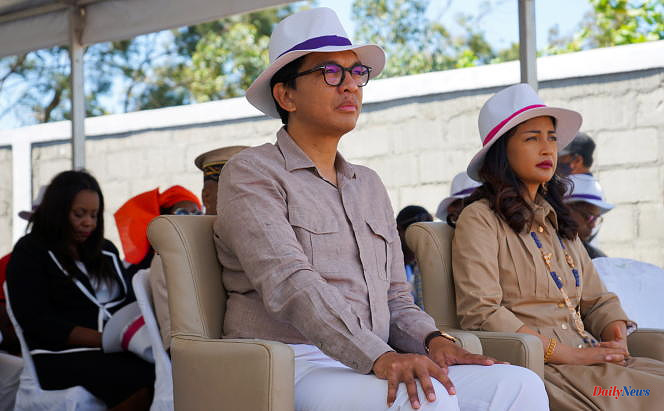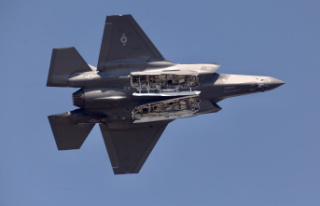Andry Rajoelina's social turn only lasted a few days. On Friday, February 3, less than a week after announcing the freezing of major investments and ordering his ministers to go "to the four corners of the country to help and support the population on all that is urgent", the Madagascan head of state canceled his directives. He confirmed the continuation of the emblematic projects of the Emergence Plan promised in 2018, such as the cable car in Antananarivo, the highway between the capital and Tamatave or the new town of Tanamasoandro...
No explanation was given for this spin, perceived as an additional symptom of a regime tempted to govern on sight to respond to discontent that is rising from all sides. But the freedom that Andry Rajoelina intended to take with a finance law for 2023 that had just been passed made people jump. “The President of the Republic cannot do what he wants with the state budget. This money does not belong to him,” said MP Hanitra Razafimanantsoa, a member of the Tim party, of former President Marc Ravalomanana.
Nine months before the presidential election – the Independent National Electoral Commission (CENI) has just proposed 9 November as the date for the first round – poverty has reached a record level, with more than 80% of the population living below the poverty line. $2.15 a day, according to the World Bank. Inflation caused by the war in Ukraine and the difficulties of transporting food across the island due to the deterioration of the roads are driving up the prices of basic necessities such as rice.
The vanilla sector is in crisis
After the civil servants, whose salaries were paid late at the end of 2022, the companies benefiting from public contracts expressed their anger by demonstrating in the center of the capital, on February 2, to demand to be paid. According to their representatives, they are "thousands across the island to suffer from this situation after having provided the state with office supplies, computer consumables, agricultural inputs, infrastructure works for presidential projects".
The Groupement des entreprises de Madagascar (GEM), which federates the large companies of the private sector, multiplies the alerts on the deterioration of the business climate. “Corporations are at the mercy of an incompetent and corrupt judiciary. It's not new, but the situation is getting worse. Without respect for the law, no national or foreign company can invest", warns its president, Thierry Rajaona.
Showcase of the island's economy and main provider of foreign currency, the vanilla sector is also in crisis following the government's decision, in 2021, to impose a floor export price of 250 dollars/kg, much higher than international prices, currently between 150 and 180 dollars. Madagascar may well be the world's leading producer of vanilla, but its operators are accumulating unsold stocks and demanding a liberalization of the sector. The incomes of small growers in the Sava region (north-east), the main production area, are in free fall.
In this atmosphere of decay, the deaf slingshot in the camp of Andry Rajoelina. Target, at the beginning of December, of a draft motion of censure signed by 105 deputies (out of 151), including a majority from the presidential party (IRD), the government of Prime Minister Christian Ntsay owes its survival only to the "no -admissibility" of the text decreed by the permanent office of the National Assembly. A decision whose foundation is tainted by barely concealed pressure from the executive on the president of the lower house, Christine Razanamahasoa.
Several deputies, including some long-time supporters of the Head of State, have chosen to join the "C Lera" platform (which means "it's time"), launched immediately to federate the opposition and mobilize civil society, with the primary objective of obtaining guarantees for transparent and credible elections.
Donors stay away
The conditions under which the ballot will be organized are indeed sources of concern. The overhaul of the electoral list, which was supposed to be completed at the end of January, only made it possible to identify just over 9 million voters, for a body of voters estimated at 13.5 million. The government has budgeted about 10 million euros for the ballot, while the CENI estimates that three times that amount is needed.
Foreign donors, who in 2018 had financed half of the operations, have so far kept a cautious distance. The embezzlement of funds allocated to Madagascar as part of the fight against Covid-19 has stung most of them, who, like the European Union, do not intend to directly support the State without United Nations engagement in the process.
A sign that the major political maneuvers have begun, former President Hery Rajaonarimampianina, defeated in 2018, arrived in Antananarivo on Saturday February 11, after four years of absence. A return to "see and listen", he assured, without prejudging his possible candidacy. Opponent in the second round of Andry Rajoelina, Marc Ravalomanana, who led the country from 2002 to 2009, no longer makes any secret of his desire to get back into the race.
The ability of the supporters of "Anything but Rajoelina" to ally will be one of the keys to the next election. If the head of state has not yet officially revealed his intentions, they are however little in doubt. The social shift in his discourse is no stranger to this because in this regard, he will have to defend a record that in no way keeps its promises.












